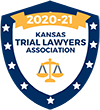
Even in cases of clear-cut fault, it is not uncommon for truck drivers, trucking companies and their insurance company to try to deny or minimize responsibility for an 18 wheeler wreck or other truck accident. One common method is to try to blame the driver of the other vehicle(s) involved. The driver, trucking company, insurance carrier and their accident attorney may tell a very different story from the way the injured person(s) believes the truck crash happened.
In the American legal system the person making a claim for injuries in a truck wreck usually has to prove it and negate claims of their own fault. Obviously, if the trucker involved in a semi truck crash is telling a very different story, then proving your right to compensation in an 18 wheeler crash or other truck accident can become more difficult.
That’s where the Federal Motor Carrier Safety Regulations (FMCSRS) can be very helpful. The FMCSRS or similar state regulations are some of the primary safety rules trucking companies are typically required to follow. As the name suggests, the FMCSRS are intended to improve the safety when you share the road with 18 wheelers and other big trucks. Knowledge and skillful use of the FMCSRS by your 18 wheeler accident attorney can be very valuable in dealing with improper denial or attempt to minimize responsibility for a truck wreck.
Ways a semi truck crash lawyer can use the FMCSRS:
 Driver Awakeness and Alertness An awake and alert driver is basic to safe driving. To help insure that commercial truck drivers are awake and alert “Hours-of-Service” regulations limit how many hours a truck driver may be on-duty and drive are part of the FMCSRS. In most cases drivers are required to maintain logs recording their driving time, on-duty time and off-duty time. Showing that the trucker exceeded the permitted number of driving or on-duty hours, did not take required breaks or have enough off-duty time may help show that the driver was not sufficiently awake and alert and may help your attorney prove the driver’s and trucking company’s fault.
Driver Awakeness and Alertness An awake and alert driver is basic to safe driving. To help insure that commercial truck drivers are awake and alert “Hours-of-Service” regulations limit how many hours a truck driver may be on-duty and drive are part of the FMCSRS. In most cases drivers are required to maintain logs recording their driving time, on-duty time and off-duty time. Showing that the trucker exceeded the permitted number of driving or on-duty hours, did not take required breaks or have enough off-duty time may help show that the driver was not sufficiently awake and alert and may help your attorney prove the driver’s and trucking company’s fault.
Drug and Alcohol Testing after Crashes An 80,000 pound 18 wheeler being driven by a driver under the influence of alcohol and/or illegal drugs is a recipe for disaster. To address this, the FMCSRS include drug and alcohol testing requirements for semi drivers. A drug and alcohol test after certain kinds of injury crashes is required. A positive test result showing that the driver had prohibited drugs and/or alcohol in his or her system may help show that the driver was under the influence or otherwise impaired and help establish his or her fault for the wreck. On the other hand, if the driver did not take the after-accident drug and/or alcohol test as required, the question is raised why was the test not taken and is somebody trying to hide something? In short, a positive drug and/or alcohol test, or not taking one as required, can both be used to show fault on the part of the driver and trucking company.
 These are just two examples of how your 18 wheeler accident lawyer can use the FMCSRS to prove and enhance the value of your case. You can easily see how important the Federal Motor Carrier Safety Regulations can be to your case. When choosing a semi truck wreck lawyer for your case and look for one who is knowledgeable of and knows how to use the Federal Motor Carrier Safety Regulations effectively in your truck accident case.
These are just two examples of how your 18 wheeler accident lawyer can use the FMCSRS to prove and enhance the value of your case. You can easily see how important the Federal Motor Carrier Safety Regulations can be to your case. When choosing a semi truck wreck lawyer for your case and look for one who is knowledgeable of and knows how to use the Federal Motor Carrier Safety Regulations effectively in your truck accident case.
Lawrence Flick of Flick Law Firm. an experienced attorney, has specialized US Department of Transportation training on the Federal Motor Carrier Safety Regulations. He has used the FMCSRS in reviewing trucking company documents and procedures, questioning truck drivers and trucking company officials and bringing truck accident cases to successful conclusions for his clients. To talk to him personally about your case call (816) 221-0501.










